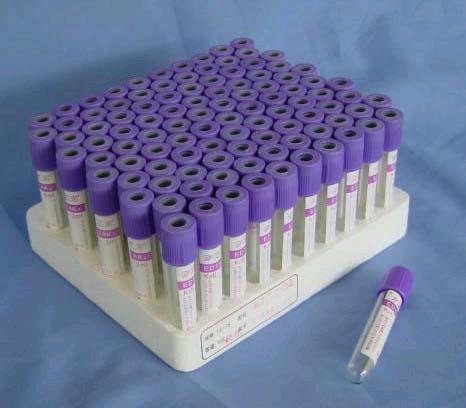Washington Supreme Court Upholds Forced DUI Blood Draws
Like most states, Washington uses an implied consent statute to punish anyone who refuses to submit to a breathalyzer test upon being accused of drunk driving. In a ruling last Thursday, the Washington Supreme Court upheld the right of police to use force to remove blood from a motorist even after an informed decision to refuse the test has been made. The high court argued that recent changes to the law essentially eliminated the need to seek consent when a warrant is obtained.
The court made its decision in the case of Robert St. John who crashed his motorcycle in Seattle on July 24, 2005. Responding to the scene that day, Seattle Police Officer Eric Michl noticed St. John had slurred his words when speaking. At Harborview Hospital, Michl arrested St. John for driving under the influence of alcohol (DUI) and read the standard warning about the consequences of refusing a blood alcohol test. Although St. John refused to submit, Michl had a judge standing by and St. John’s blood was removed from his body by force. At trial, Michl testified that he did not warn St. John that he planned to take his blood regardless of his answer.
“The warning given to Mr. St. John was implicitly misleading, violating his due process rights,” St. John’s attorney, Ryan Robertson, argued. “The warning told him he had the right to refuse the test, but never told him the state could obtain his blood without his consent with a warrant if he refused; thus rendering the right to refuse meaningless.”
A municipal court agreed that Michl’s procedure was unfair and illegal, but a superior court reversed the decision. The supreme court’s final ruling is that Michl’s actions were fair and legal.
“Obtaining a blood alcohol test through the implied consent statute is a separate process from obtaining a blood alcohol test pursuant to a warrant, and the officer made no representation to St. John that the state could not obtain a blood alcohol test pursuant to a lawful search warrant,” Justice Susan Owens wrote for the majority.
By separating the two ways to obtain evidence—by consent and by warrant—the majority sidestepped a provision of the implied consent statute explicitly prohibiting forced testing.
“If, following his or her arrest and receipt of warnings . . . the person arrested refuses upon the request of a law enforcement officer to submit to a test or tests of his or her breath or blood, no test shall be given except as authorized under subsection (3) or (4) of this section,” states RCW 46.20.308(5) (subsections 3 and 4 do not apply to the case at hand).
Justices Richard B. Sanders and James M. Johnson filed a dissent, arguing that this provision could not simply be ignored.
“Obtaining a blood sample from St. John by search warrant plainly violated the express prohibition of RCW 46.20.308(5) since St. John withdrew his consent and no exception under the statute applied,” Sanders wrote. “If we accept the majority’s reasoning, a driver’s refusal to consent under subsection (5) would be meaningless.”
The majority countered by citing a 2004 legislative amendment stating “neither consent nor this section precludes a police officer from obtaining a search warrant for a person’s breath or blood.” Because focusing on this provision would allow for the “efficient” conviction of those accused of DUI, the high court found no problem with Officer Michl’s conduct.
“The implied consent statute explicitly allows a police officer to obtain a blood alcohol test pursuant to a warrant, even after a driver refuses a voluntary blood alcohol test,” Owens concluded. “Neither due process nor equitable estoppel requires police officers to inform DUI suspects of the possibility of obtaining a warrant to collect evidence.”
More by The Newspaper
Latest Car Reviews
Read moreLatest Product Reviews
Read moreRecent Comments
- El scotto UH, more parking and a building that was designed for CAT 5 cable at the new place?
- Ajla Maybe drag radials? 🤔
- FreedMike Apparently this car, which doesn't comply to U.S. regs, is in Nogales, Mexico. What could possibly go wrong with this transaction?
- El scotto Under NAFTA II or the USMCA basically the US and Canada do all the designing, planning, and high tech work and high skilled work. Mexico does all the medium-skilled work.Your favorite vehicle that has an Assembled in Mexico label may actually cross the border several times. High tech stuff is installed in the US, medium tech stuff gets done in Mexico, then the vehicle goes back across the border for more high tech stuff the back to Mexico for some nuts n bolts stuff.All of the vehicle manufacturers pass parts and vehicles between factories and countries. It's thought out, it's planned, it's coordinated and they all do it.Northern Mexico consists of a few big towns controlled by a few families. Those families already have deals with Texan and American companies that can truck their products back and forth over the border. The Chinese are the last to show up at the party. They're getting the worst land, the worst factories, and the worst employees. All the good stuff and people have been taken care of in the above paragraph.Lastly, the Chinese will have to make their parts in Mexico or the US or Canada. If not, they have to pay tariffs. High tariffs. It's all for one and one for all under the USMCA.Now evil El Scotto is thinking of the fusion of Chinese and Mexican cuisine and some darn good beer.
- FreedMike I care SO deeply!

































Comments
Join the conversation
Packard, et al: "Implied Consent" laws do not sidestep the 4th amendment because they are not linked to the criminal prosecution. Implied consent laws are conditions of receiving a driver's license, which is a privilege, not a right. That's why the penalty for refusing a test is not criminal (prosecution) it is a civil administrative procedure to revoke the license (which can be contested, BTW.) Now, if a driver does consent to a blood, breath or urine test, then that evidence can be introduced at trial. But the implied or express consent laws are not part of the criminal law, they are part of the civil law relating to the issuance of driver's licenses. As part of civil law, the 4th amendment prohibition against unreasonable search and seizure does not apply nor does the 5th amendment privilege against self incrimination (you have no privilege against self-incrimination in a civil trial, ask anyone who's ever been sued.) To put it more simply, you can "opt out" of the implied/express consent laws if you want. All you have to do is not get a drivers license and not drive on public highways. No drivers license = no implied/express consent laws.
@SexCpotatoes, Do you realize that fluoridation is the most monstrously conceived and dangerous communist plot we have ever had to face? Next to the sham consistently perpetrated against the motorist, frankly our police force has been relegated to the role of modern day highwayman. I cannot remember when I have last seen one of my finest on the beat..